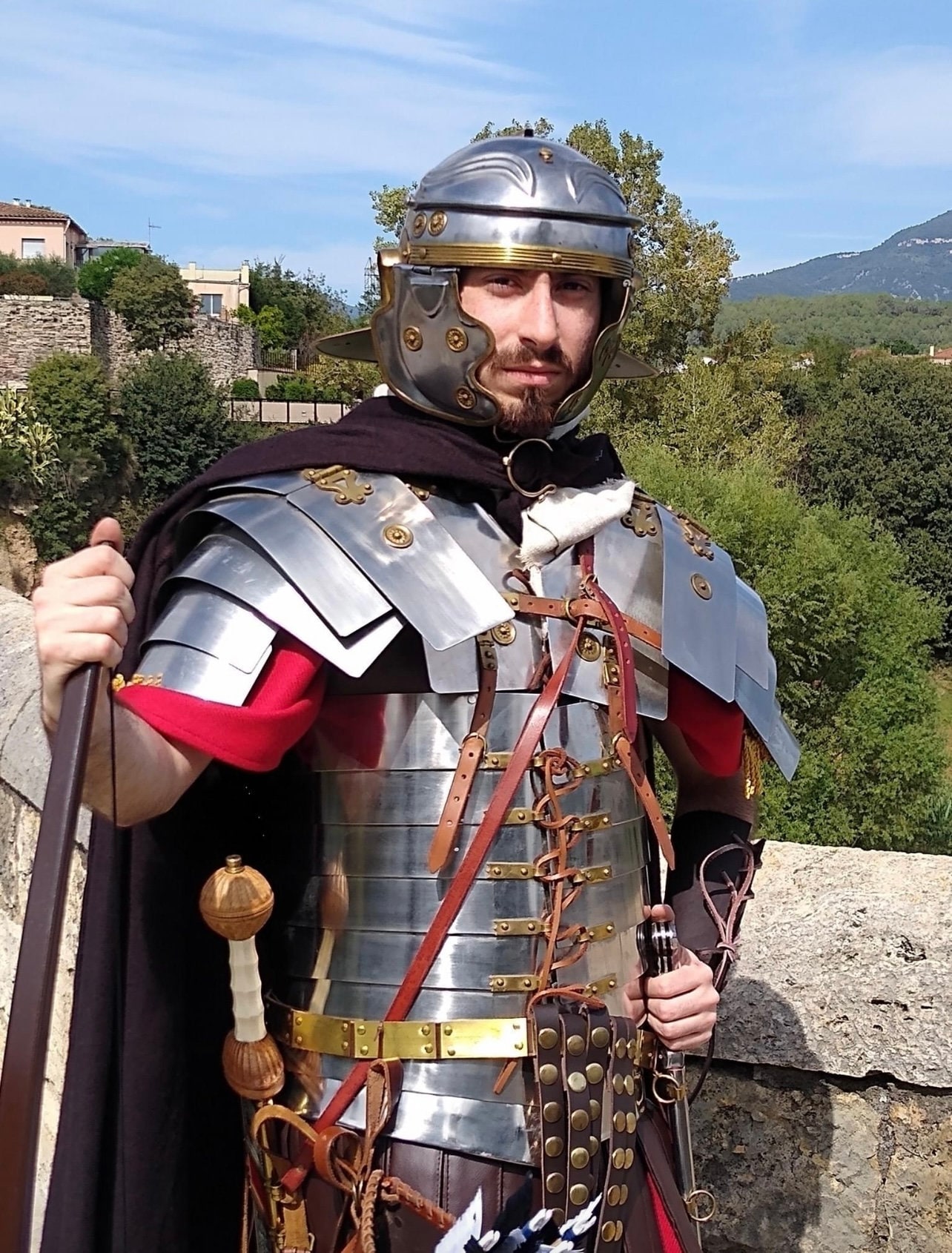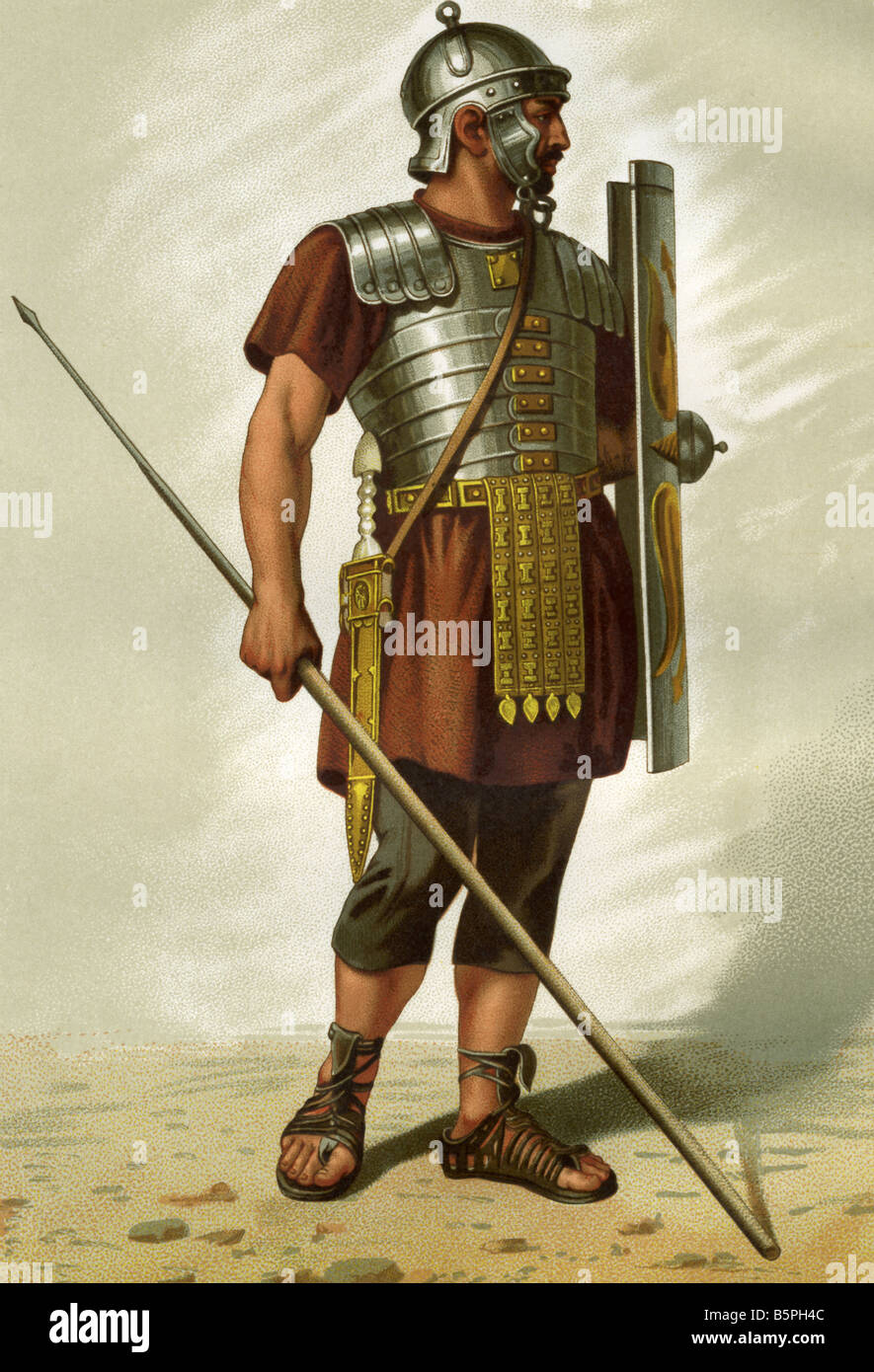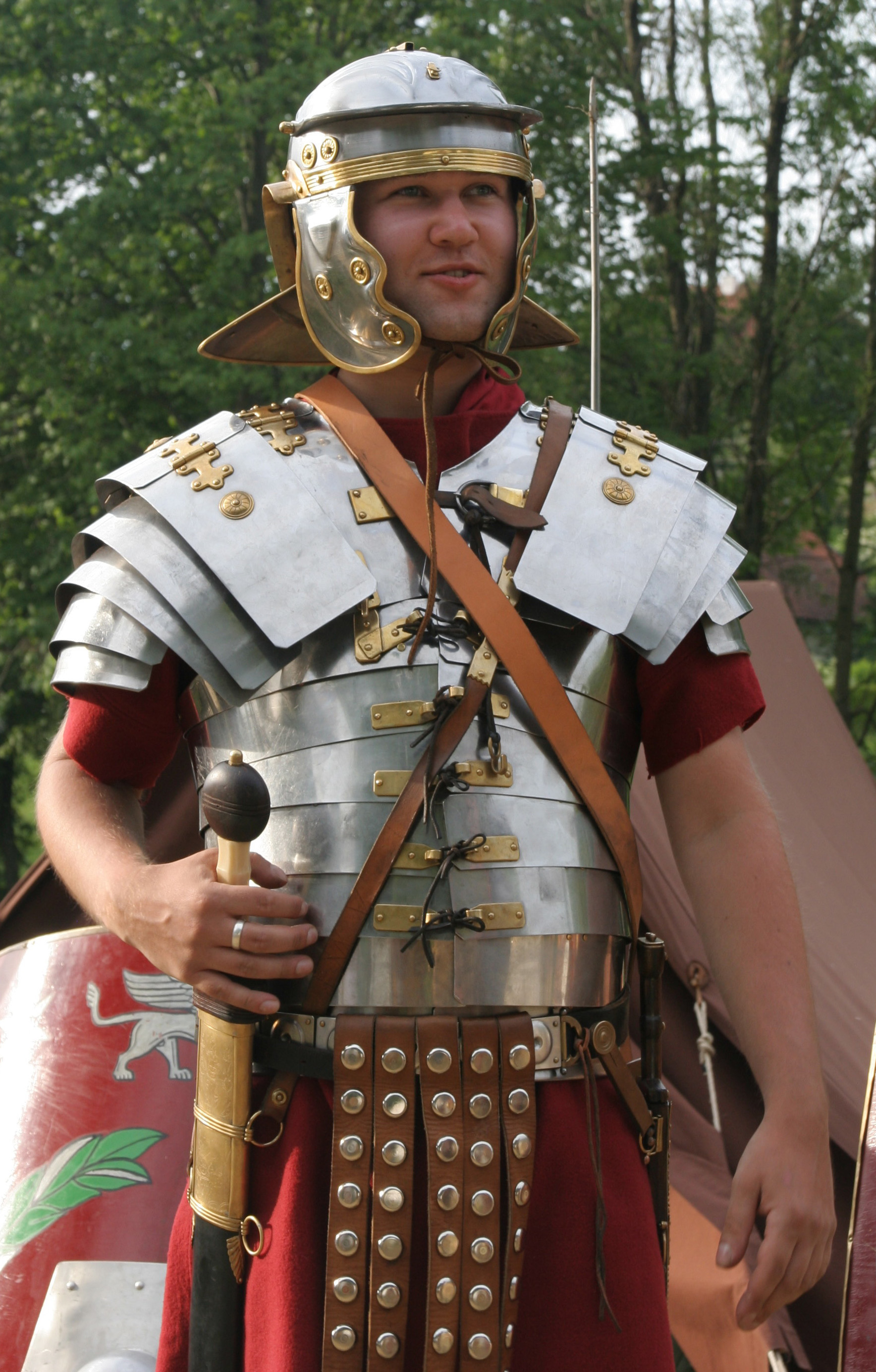
36 best Roman Empire Armor images on Pinterest Roman empire, Roman
Article. From the days of the hoplites through the creation of the legionary until the fall of the Roman Empire in the west, the Roman army remained a feared opponent, and the Roman legionary 's weapons and armor, albeit with minor modifications, remained the same: a spear, a sword, a shield, and a helmet. Although the Early Republic achieved.

Roman soldier ready to combat! Ancient Rome, Ancient History, Egyptian
The Roman soldiers diet amounted to 3,000 calories a day and while heavy in wheat and barley, also consisted of a robust array of foods.. While armor was dictated by a soldier's role and function, clothing was determined by the current environment. Wood was a staple material of Roman clothing and a soldier's clothing options entailed a.

roman soldier armor Roman warriors, Ancient warfare, Roman soldiers
Caligae, heavy-soled military shoes or sandals which were worn by Roman legionary soldiers and auxiliaries throughout the history of the Roman Republic and Empire. The focale, a scarf worn by the Roman legionary to protect the neck from chafing caused by constant contact with the soldier's armor. The loculus, a satchel, carried by legionaries.

The Equipment Of A Roman Soldier The Roman Army
Weapons & Armor of the Roman soldier after the Marian reforms (107 BC - 3rd century AD) As we have found out, prior to the Marian reforms the Roman heavy infantry consisted of the Hastati, the Principes, and the Triarii. The Marian reforms of 107 BC that are usually attributed to the general and politician Caius Marius simplified that.

RYSE by Timur Mutsaev on ArtStation. Roman armor, Roman warriors
Swords ( Gladius & Spatha) The gladius was the primary weapon of the Roman legions. The gladius was a short, two-sided sword used during the late Roman Republic and much of the Roman Empire. It was between 40 and 60 centimeters in length. The earliest gladius can be dated to the early Roman Kingdom in the seventh century BCE.

Pin by on Fantasy/Knights/Warriors Roman warriors, Roman
The lorica segmentata (Latin pronunciation: [ɫoːˈriːka]), also called lorica lamminata, or banded armour is a type of personal armour that was used by soldiers of the Roman army, consisting of metal strips fashioned into circular bands, fastened to internal leather straps.. The lorica segmentata has come to be viewed as symbolic of the Roman legions in popular culture.

roman armor Pesquisa Google Roman Armor, Lorica, Roman Legion, Armor
No. 33. Legionary soldier of the eastern provinces of the Roman Empire after a bas-relief of the Trajan Arch, which was later transferred to the Arch of Constantine. No. 37. - Detail of his armor. Tunic made of several layers of leather with bronze buttons. - Cassis with neck guard, jaw flaps and ring to hang.

Oficial Romano Roman soldiers, Roman warriors, Ancient armor
"Cassius" Roman Greaves Stainless steel leg and knee protection. $339.00 $259.00. Mobility was an essential for well-trained medieval knights and soldiers, while thickening of the armor invariably increases its weight, and thus - reduces mobility. The armorers skillfully strengthen middle ages armor with forging, adding reinforcement.

OSR ACI754C Roman General Armour set and ACI754B costume set! / Photos
Roman clothing and armor is handsome, practical, and also amazingly well documented, which makes our job easier! The Romans had an astute commitment to recording their military tactics, regalia, and life. Roman legionary armor was easy to construct and provided the most vital amount of protection without weighing down the wearer too much.

time limit of 50 discount Fast Shipping Mens Roman 3D TSHIRT Fancy
The Roman soldier's shield was a complex piece of armor. The shield, also called a scutum, was a soldier's primary defensive weapon. It was made of impenetrable wood, leather, canvas, and metal and could be doused in water to extinguish the fiery arrows of the enemy. Faith is the shield of the believer.

Armor of roman soldier hires stock photography and images Alamy
The Romans used three types of body armour: a hooped arrangement called lorica segmentata; scaled metal plates called lorica squamata, and chain mail or lorica hamata. Mail was durable and was used almost throughout Roman history as Roman soldier's armour. The hooped armour was expensive to produce and heavy; it was used from around the start.

Roman costume worn by Christopher Plummer as in The Fall of
The most common type of armor worn by the Roman soldiers was ring mail armor or scale armor. Ring Mail. Ring Mail armor was issued to all heavy Roman infantry and auxiliary troops throughout the Roman Republic. It was the standard issue armor at the time and could be made of either iron or bronze. Each piece was made up of thousands of iron or.

obj roman soldier body armor
While writing his passage about the "armor of God," Paul is writing to an audience that is well aware of the battle array of Roman soldiers. Ephesus was known as a "leading city of the richest region of the Roman Empire" and "served as the administrative and commercial hub of Asia Minor.". (1) In addition to being an important city.

Pin on Costumes
The armor of the Roman army around 160 BC was mainly comprised of a shield, the scutum, and body armor that varied depending on rank and position, consisting of a breastplate and one greave, on the left leg.The scutum was a curved oval shield made from two sheets of wood glued together and covered with canvas and leather, usually with a spindle shaped boss along the vertical length of the shield.

Roman Armor stainless steel lorica full set “Cassius” Roman armor
Leg, hand, head and shield armor gear. Manica - Manica was armguard made from thin metal plates that was worn by some Roman soldiers. Greave - Metal leg protection that had the form of thin metal sheets that was used in later years of Roman history. Scutum - Large metal-enhanced wood shield that was heavily popularized in Rome for.

Soldiers of the Past Roman Legionaries All About History
The arms and armor of the imperial Roman army have been reconstructed in some detail, using archaeological, artistic, and philological and historical evidence. 11 The first-century imperial legionary was a heavy infantryman with fairly standardized equipment. An iron helmet with large neck and cheek guards protected the head.